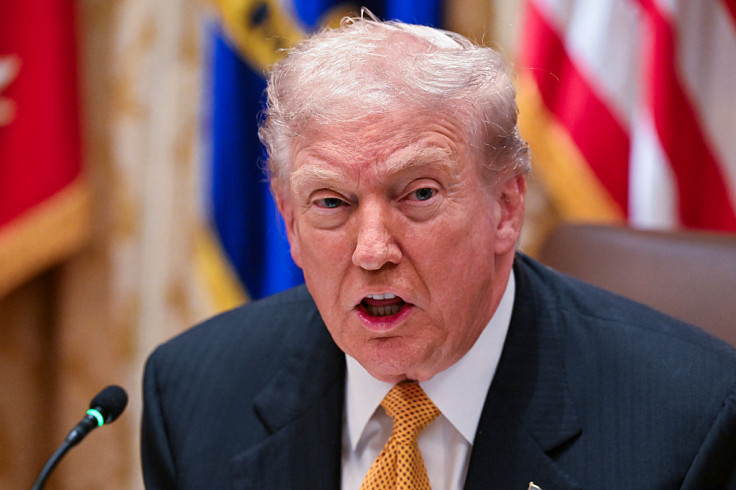
President Donald Trump said land strikes against alleged drug smugglers are set to start "very soon."
Speaking during a Thanksgiving call to U.S. service members, Trump said recent strikes against alleged drug-smuggling vessels at sea have helped to "deter Venezuelan drug traffickers, of which there are many."
"Of course, there aren't too many coming in by sea anymore," Trump added. "You probably noticed that people aren't wanting to be delivering by sea, and we'll be starting to stop them by land also."
Trump has repeatedly threatened to conduct land strikes, likely in Venezuela considering the administration is also seeking to push authoritarian President Nicolas Maduro from power. The regime has struck a defiant tone, challenging the administration.
There are conflicting takes about whether the strikes are having an impact on cocaine smuggling into the U.S.
A top U.S. Coast Guard official said they have not significantly altered routes. Speaking to CBS News, Adm. Nathan Moore, the commander of Coast Guard Atlantic Area, said the force has not seen "any noticeable difference" in the flow of cocaine in the region.
Moore also told the outlet that there have not been major changes in routes or pace in the region, or in drug purity, despite the more than 20 strikes conducted in the Caribbean and the Eastern Pacific, killing over 80 people.
However, Drug Enforcement Administration Administrator Terry Cole contradicted Moore's claim, saying cocaine is getting more expensive, not only "in the U.S., but we're seeing it become more expensive at first stops."
"So more expensive in Puerto Rico, more expensive in the Dominican, more expensive once it lands in Guatemala and Honduras and Central America," he added, claiming that the price increased between 30 and 45% per kilo.
"It's now more expensive to recruit boat captains, it's more expensive to purchase engines, it's more expensive to build larger boats for transportation," Cole claimed.
Another report noted that smugglers operating in the region can get $100,000 if they manage to deliver the drugs safely.
The Wall Street Journal interviewed three people involved in such runs, detailing that cargoes can be worth as much as $70 million. They are usually moved through 40-foot-long boats powered by oversize outboard engines.
Given the hefty payout, some are taking the jobs despite the risk of being blown up. Crews are now looking for any advantages, including sailing at night or during rough weather.
"These drug organizations live from trafficking. They will continue to do this. This doesn't end. This will continue even if the United States continues its bombings," one pilot told the WSJ.
© 2025 Latin Times. All rights reserved. Do not reproduce without permission.





